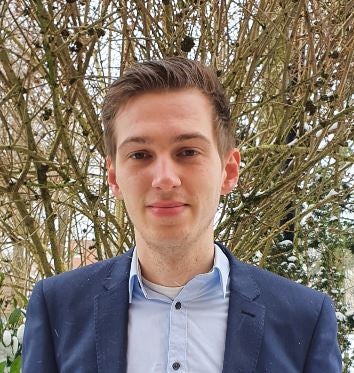“I have always been interested in economics in relation to sustainability. Back when I was doing my Bachelor's degree in Information Science, my interest in sustainability led me to enrol in a course in which we developed a sustainability game. We worked in interdisciplinary teams with participants from both the research university and the university of applied sciences. In this course, we created an application that encourages young adults to pick sustainable options in the supermarket. For example, the app helps you find an alternative to that peanut butter that contributes to a large ecological footprint. It was a successful prototype and I liked the experience of working in such a multidisciplinary team.”
“I really wanted to broaden my view by learning from the perspectives of people with backgrounds in areas such as economics, politics and law. What I liked about ERM was its solution-oriented approach. The focus was not on a discipline, but on how you arrive at the best possible solution to a problem. Also, the societal relevance of the subjects we discussed appealed to me as well as the international focus on economics and politics. I wanted to learn from foreign students from various countries and discuss with them how they envision improving sustainability.”
“I look back on my studies with fondness. In one year, this study programme gave me the knowledge on the possibilities to move towards a sustainable economic and political system. I enjoyed the human-centredness of the programme, in which I learned about economic motivations and the valuation of ecosystem services and renewable energy sources. It made me realise that there are many people willing to invest in sustainable products like solar panels and brands like Patagonia.”
“I now work as a Public Affairs Advisor at the Dutch Sustainable Energy Association (NVDE) and, in consultation with our members and partners, I propose political and economic solutions to drive the energy transition forward. I contribute ideas regarding the development of a new order in the economic market in which renewable energy is set to become the standard.. I’m specialised in energy infrastructure, specifically the electricity grid. The ambitious plans from the Dutch Climate Agreement call for enormous increases in wind, sun and electrification in sectors such as industry and mobility put more and more pressure on our electricity grid. Even now not every connection request to the electricity grid can be honoured within set time frames. I’m therefore also working on making ‘smart solutions’ scalable to use the present infrastructure as efficient as possible. What I like about this work is being at the heart of the transition and contributing to achieving our climate goals.”
Govert Vermeer, Public Affairs Advisor
Govert Vermeer got his Master's degree in Environment and Resource Management (ERM) at VU Amsterdam in 2021. Govert now works as a Public Affairs Advisor at the Nederlandse Vereniging Duurzame Energie (Dutch Sustainable Energy Association, NVDE).

“I really wanted to broaden my view by learning from the perspectives of people with backgrounds in areas such as economics, politics and law."